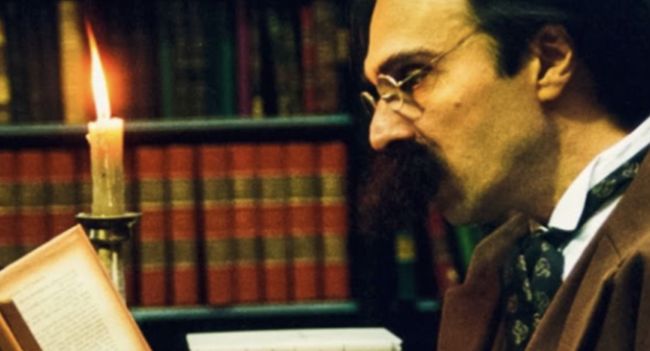The great thinkers of the past knew nothing of Youtube — which, we might be tempted to say today, enabled them to become great thinkers in the first place. This is, of course, uncharitable: surely the rise of streaming media counts among the most important developments in the history of education. Many college students today may genuinely wonder how previous generations got by without Youtube’s background-music mixes engineered, as the New Yorker’s Amanda Petrusich wrote not long ago, “to facilitate and sustain a mood, which in turn might enable a task: studying, folding laundry, making spreadsheets, idly browsing the Internet.”
If Youtube had been available to important minds of previous centuries — indeed, previous millennia — what sort of studying music would it have served to them? This is, in some sense, a philosophical question, and a philosophy channel has been providing answes: a host of answers, in fact, each in the form of a themed Youtube mix.
On Filosofia Acadêmica you’ll find a playlist to study like “a seventeenth-century philosopher” (Beethoven, Tchaikovsky, Tartini), like “a medieval philosopher having the truth revealed by divine grace” (Gregorian chants), and like “Socrates after discovering from the Oracle of Delphi that he is the wisest” (lots of harp and boat sounds).
Uploaded over the past year, these playlists have proven to be the biggest hits on Filosofia Acadêmica (a Brazilian channel also offering interviews like “Filosofia da Matemática com Oswaldo Chateaubriand” and “Filosofia da Religião com Domingos Faria,”). Its creator Elan Marinho has also put effort into crafting music mixes after particular thinkers in such notable moments as “Newton sticking needles in his eyes to test hypotheses about light,” “Turing inventing the computer” and “Nietzsche over the abyss in a tightrope between the animal and the übermensch” (opening, naturally, with “Ride of the Valkyries”). Many of these selections dispense with period accuracy, departing wildly from the subject’s time and place. But then, hasn’t imaginative license has always been a key component of great thought?
